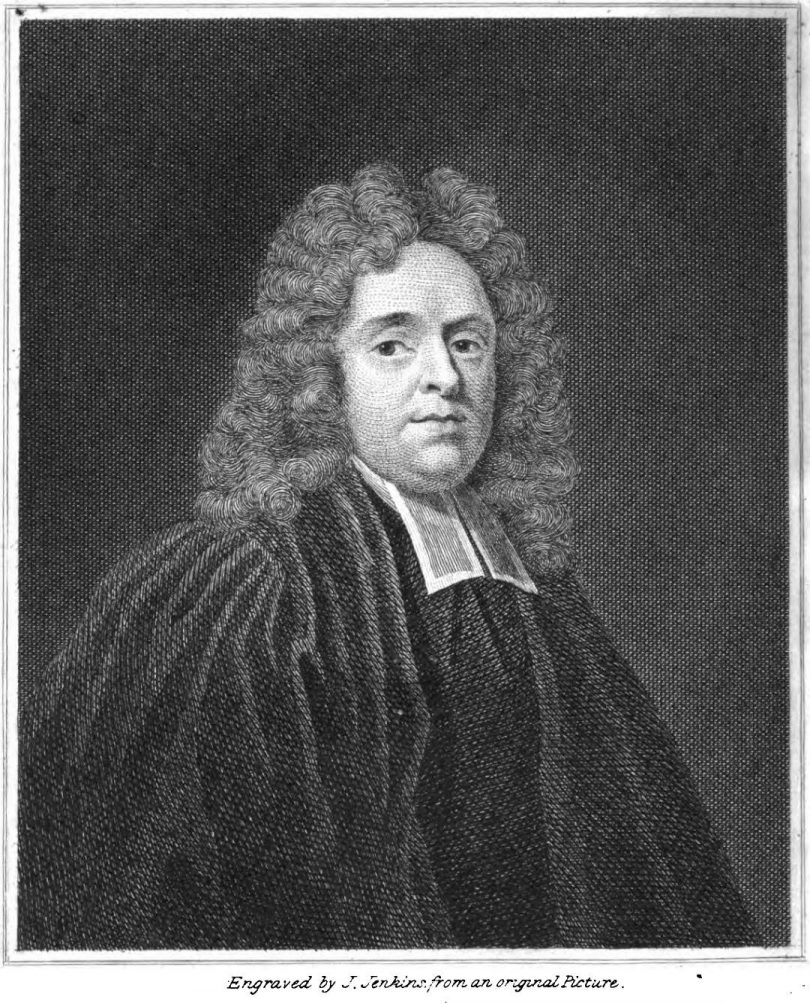From Pastor Chuck Baldwin:
For years people … have been asking me to recommend a study Bible. This I was not able to do, because every comprehensive study Bible I knew of taught the false doctrines of ‘Christian Zionism’. The only study Bible I knew of that was NOT Zionist-based was the Matthew Henry Study Bible. But for years this study Bible was not in mass production. And if you found one on, say, eBay, you’d pay close to $100 for it.
For over a year, I was in negotiations with the publisher of the Matthew Henry Study Bible; and we finally became a distributor of this phenomenal Bible this past June. So many people ordered this wonderful Bible that we sold out the publisher’s entire stock. Since then, we have been waiting for a new supply to be printed.
Matthew Henry’s commentaries on the Bible—written from 1708 – 1710—are yet today the gold standard of Bible commentaries. These were Charles Spurgeon’s favorite Bible commentaries.
Of these commentaries, Spurgeon said:
First among the mighty for general usefulness we are bound to mention the man whose name is a household word, Matthew Henry. He is most pious and pithy, sound and sensible, suggestive and sober, terse and trustworthy. You will find him to be glittering with metaphors, rich in analogies, overflowing with illustrations, superabundant in reflections. . . . It is the poor man’s commentary, the old Christian’s companion, suitable to everybody, instructive to all.
The famous English evangelist George Whitefield, who was one of the human agencies responsible for the Great Awakening in Colonial America, read Matthew Henry’s commentaries all the way through four times. The last time, he read them on his knees.
For 20 years, I have tried to reacquaint the American people with the majestic Liberty principles of our Founding Fathers by publishing THE FREEDOM DOCUMENTS. Now, my desire is also to reacquaint Christian people with the majestic Biblical doctrines of the faith of our fathers—unfettered with the false prophecy doctrines of Scofieldism — by distributing the Matthew Henry Study Bible.
If somehow the Church could extricate itself from the false doctrines of Christian Zionism, I truly believe God would restore both Liberty and Revival to our land. The Bible commentaries of Matthew Henry and other pre-Scofield Bible scholars in bygone centuries gave birth to the patriot pastors and preachers of Colonial America that brought a Great Awakening—and then a revival of Liberty—to this country.
Ask yourself: What has one hundred years of our pastors and churches preaching the false doctrines of Christian Zionism done for America? Do you think there is a connection between the increase of this false teaching and the decrease of true Christianity in this country? I do!
If you have been hungry for an exhaustive study Bible that does NOT promote the false doctrines of Christian Zionism, the Matthew Henry Study Bible is it.
Order The Matthew Henry Study Bible here.
Chuck Baldwin
Matthew Henry’s reputation comes from his commentary, An Exposition of the Old and New Testaments (1708-1710, known also as ‘Matthew Henry’s Commentary on the Whole Bible’). Matthew only lived to complete as far as the end of the Acts. After his death, other authors prepared the missing sections from Henry’s manuscripts.
His six-volume ‘Exposition of the Old and New Testaments’ (1708-10) or ‘Complete Commentary’ provides an exhaustive verse-by-verse study of the Bible, covering the whole of the Old Testament, and the Gospels and Acts in the New Testament.
This bible is available online at Christianity.com:
https://www.christianity.com/bible/commentary.php
And at StudyLight:
https://www.studylight.org/commentaries/mhm.html
A print version is available here:
https://www.christianbook.com/the-matthew-henry-study-bible-kjv/9781598563405/pd/563405
And:
Matthew Henry was born near Wales on October 18, 1662. He was primarily home-educated by his father, Rev. Philip Henry, and also at the Thomas Doolittle academy from 1680-1682. Henry first started studying law in 1686, but instead of pursuing a career in law he began to preach in his neighborhood.
After the declaration of liberty of conscience by James II in 1687, he was privately ordained in London, and on June 2, 1687, he began his regular ministry as non-conformist pastor of a Presbyterian congregation at Chester. He remained in this position for 25 years. After declining several times offers from London congregations, he finally accepted a call to Hackney, London, and began his ministry there May 18, 1712, shortly before his death.
This work was long celebrated as the best English commentary for devotional purposes and the expanded edition was initially published in 1896. Instead of critical exposition, Henry focuses on practical suggestion, and his commentaries contains rich stores of truths. There is also a smaller devotional commentary on the Bible from Henry known as Matthew Henry’s Concise Commentary.
Spurgeon used Henry’s commentary and commended it heartily, saying: “Every minister ought to read it entirely and carefully through once at least.”
Matthew Henry died in Cheshire due to a stroke, on June 22, 1714.
A problem with study Bibles is that there a many of different translations. Some use what is called: “Essentially Literal Bible Translations”. These translations are those that examine the original Greek or Hebrew word, then translate that word into English as literally as possible. I a literal translation will make no sense to a modern English reader, the translation attempts to be as close to the original as possible while still making sense to the reader. Examples of ‘essentially literal translations’ include:
- English Standard Version
- Revised Standard Version
- New King James Version
- New American Standard Bible
- Holman Christian Standard Bible
Another type of Bible translation is called: “Dynamic Equivalence Translations”. These versions translate the Bible in a “thought-for-thought” manner. Instead of translating each word individually, they translate the original thoughts behind each word and phrase. This is an inferior method of translation because it has the potential to introduce manipulation into the translation. ‘Dynamic Equivalence’ may introduce bias by the translators. Leland Ryken explains it this way:
Adherents of “dynamic equivalence” (and the more recent label “functional equivalence”) do not necessarily feel obliged to translate the actual words of the original. Instead, these translators often engage in commentary on the biblical text instead of translation of it. This is done by bypassing the words of the original and offering an interpretation of its “content meaning” as distinct from its “lexical meaning.”
Some examples of Dynamic Equivalence translations are:
If you want the best study Bible, get an ‘Essentially Literal Bible Translation‘.
Choosing the best bible to study becomes a study in itself! Here is a good learned explanation:
https://theblazingcenter.com/study-bible
The title ‘Study Bible’ can refer to two things. Sometimes, it refers to the translation of the bible itself — a bare translations without notes. More often, it refers to a translation that includes a set of notes intended to assist with understanding the bible text.
Looking at the history of ‘Study Bibles’, the first English translations were study Bibles in both senses. Translators sought to create a version that could be understood by the masses. They wanted to take the text from the grip of academics and clerics and put it in the minds of the people. They also wished to provide guidance with explanatory notes.
This wasn’t without controversy. William Tyndale was strangled to death and burned at the stake for the crimes of translating the Bible into English and of challenging the teachings of the Roman Catholic church in his notes.







